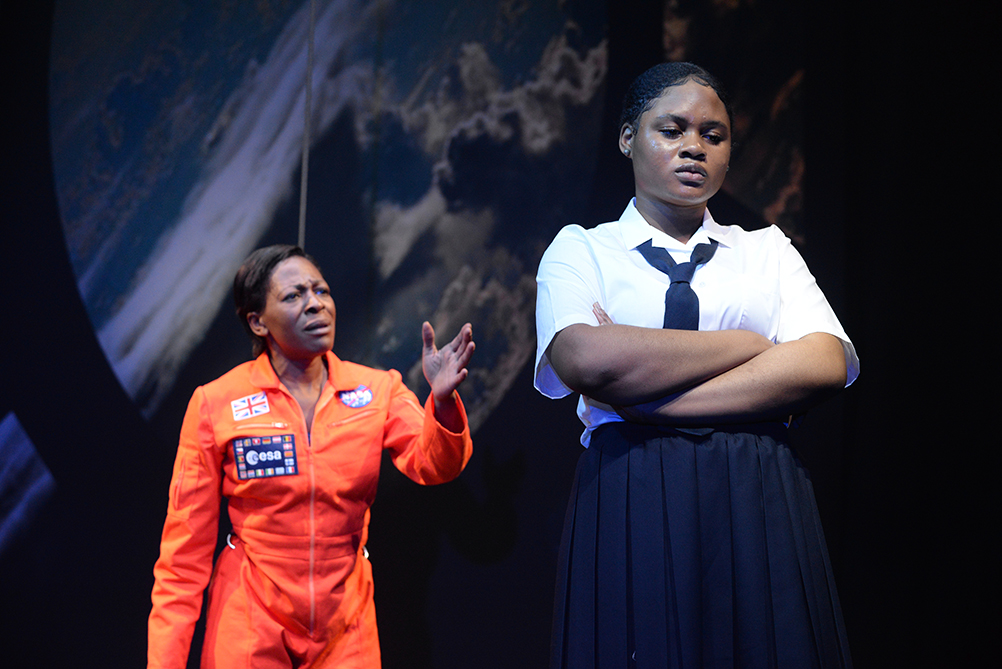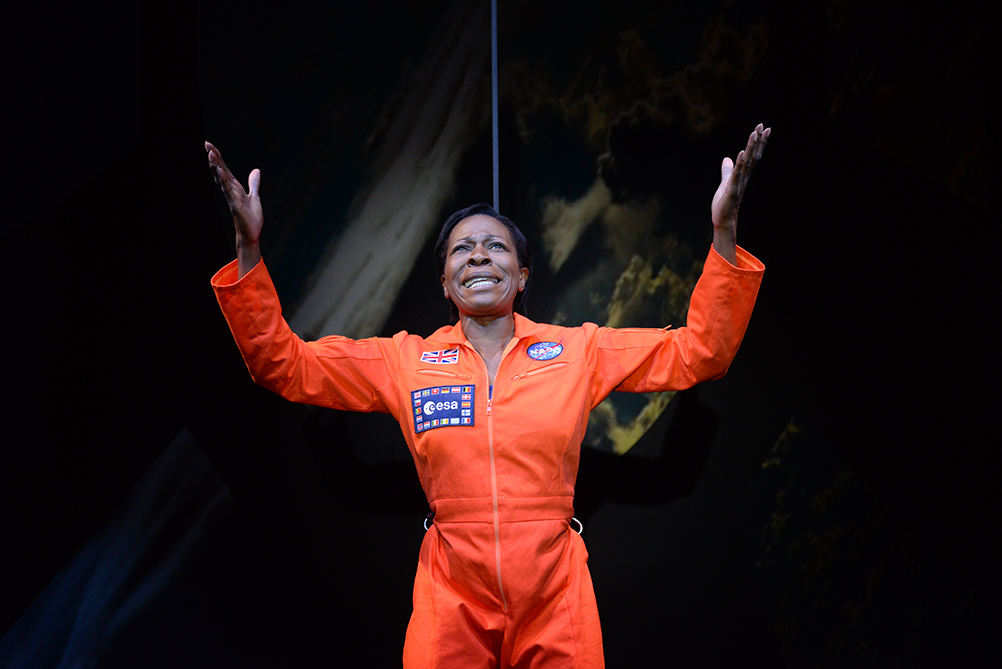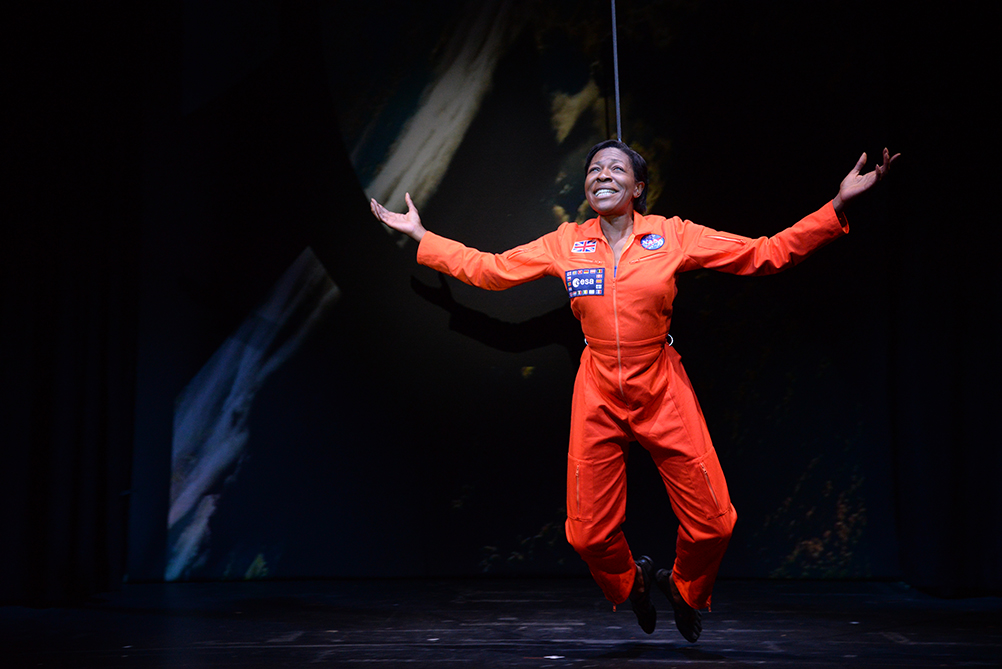The major deviations from its previous incarnation are a) it was then called The immigrant’, b) it now features Donna Berlin in the lead role of ‘Ama’ (in place of Clare Perkins) and – most significantly – c) it includes a new character on stage.
The first change is an improvement, the second (with credit due to both actors’ performances) is no diminishment, while the third… well, more on that later.
Astronaut, ‘Amanda Baptiste’ (Trinidad and Tobago’s first) – is orbiting the Earth while recording a video-link Q&A for her childhood friend ‘Rhea Sylvester’, the principal of the same Trinidadian school her teenage daughter ‘Sola’ now attends.
a thought provoking and, ultimately, emotionally uplifting experience.
This last fact causes Ama to continually interrupt her recording to reminisce about her life, and to engage in ‘conversation’ with her hitherto unseen daughter.
As a result, we get to hear how, having settled for a relationship with a man her mother views as ‘beneath her’ – at least in respect to intellect, academia, and aspirations – she falls pregnant, gets married, and has a baby. However, being an ambitious woman, she applies for – and gets onto – a trainee astronaut programme, ultimately meaning divorce from her husband and estrangement from her child.
Each written question posed by the school-kids reveals further details about her journey into space, how those around her responded to this historic achievement and – just as importantly – how her monumental decision to pursue ‘astronaut status’ has impacted upon her fraught relationship with her daughter ‘Sola’.
At this point, her daughter enters the stage, voicing her dissatisfaction at her mother’s (absentee) parenting, and physically toying with her suspended form. While understanding the temptation to ‘flesh out’ this character (her bitter words were spoken by her mother in the previous iteration), I felt the tension diminish greatly when the ‘acting baton’ was passed between the two.
This was due to a variety of reasons, not least that the two characters seemed awkward and strangely ‘distant’ together, whether physically touching or delivering conversational dialogue out into the audience.
The tension having been retrieved once she is left alone again, ‘Ama’ reminds us how – and why – she got up there in the first place. Ultimately, she refused to be enslaved by the conventions of patriarchy in its many forms: her ex-partner’s refusal to countenance her power, her mother’s refusal to believe in the moral rectitude of her wielding it at the expense of the traditional family structure, the media’s chauvinistic ambivalence towards her, or her own daughter’s ultimate revenge / repudiation of her.
The piece, carefully written by Oneness Sankara, uses Trinidadian dialects and spoken-word poetry to great effect, while Miss Berlin’s delivery vacillates between playful and strident; emotional and steadfast – even as she is suspended ‘weightlessly’ above both stage and audience by the rope attached to her.
This piece doesn’t ask whether women can ‘have it all’, or not (as if); it simply points out, when they attempt to do so – when they try to utilise a portion of the options open to men as a matter of course – just some of the indignities, humiliations and abuses they are likely to receive.
The backdrop of Earth (here seen from the space capsule) is a glimpse at the ‘world of possibilities’ dangling tantalisingly out of most female’s reach. Or perhaps it represents the fact that, for most women – no matter how high thy might reach – there is always just one more ‘glass ceiling’ to be encountered.
Although not as powerful as in its ‘solo flight’ incarnation, the main performance and the writing make it a thought provoking and, ultimately, emotionally uplifting experience.




























